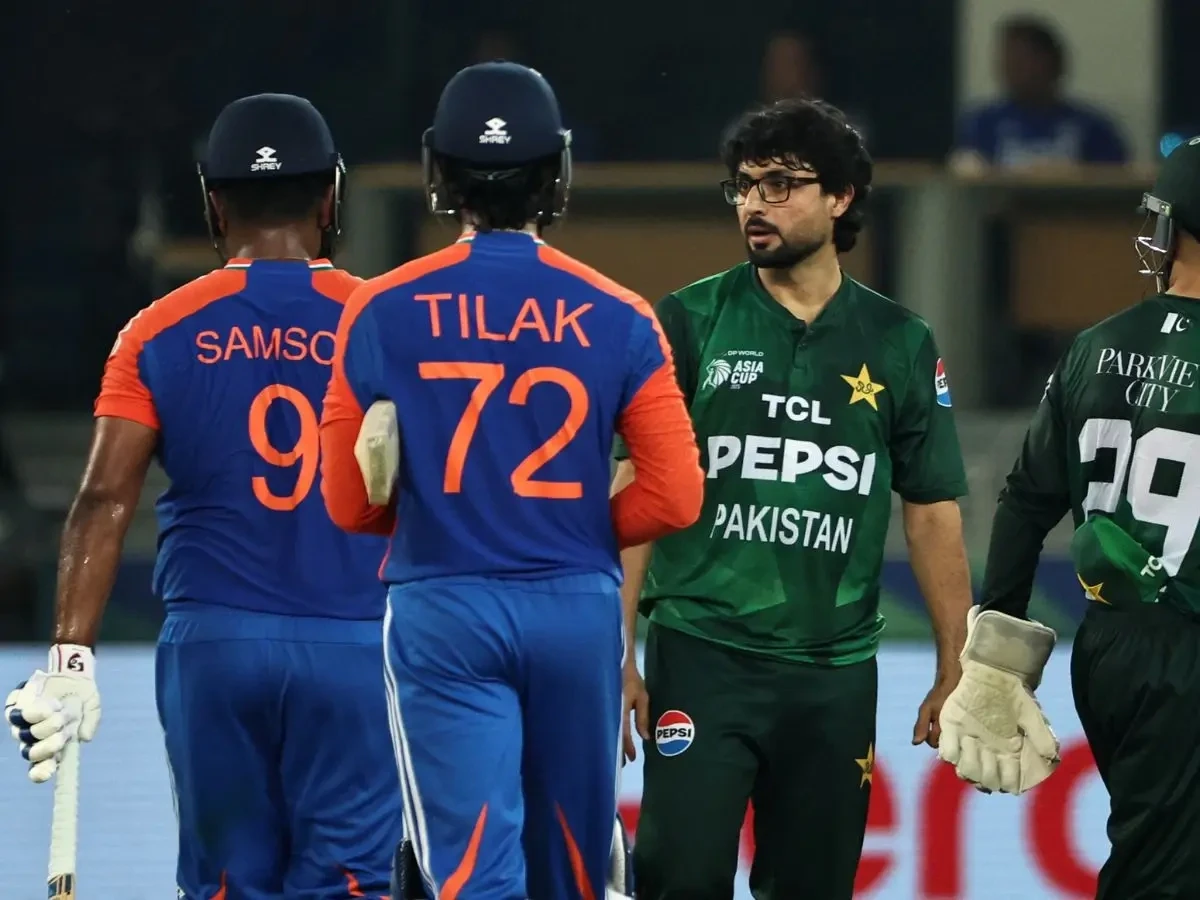Former England captain and opener Michael Atherton has accused the game’s apex body of arranging the marquee India-Pakistan matches in its multi-team events for their economic benefit, further urging them to bring in transparency in their schedules from the next broadcast cycle onwards.
Following the controversial 2025 Asia Cup, where the Indian Team decided against shaking hands with the Pakistani players, not once but thrice during their three meetings, Atherton urges the ICC to avoid putting two teams in the same bracket, as it has now become a proxy for broader tensions.
Owing to their tense geo-political relations, which turned worse following the Pahalgam terror attack, India and Pakistan do not face off in any bilateral contests, just during the ICC and ACC events.
Also, considering what transpired in the lead-up to this continental tournament and the social media backlash that followed over the two respective boards agreeing to play against each other, what unfolded at the field was no surprise. Even though Team India’s success speaks for itself, none of it would help anyone forget how forgettable this tournament was.
Writing for The Times, Atherton mentioned that even if the ICC schedules India-Pakistan matches for economic and diplomatic reasons, they must stop doing it now due to deteriorating relations between the two arch-rivals.
“Despite its scarcity (maybe, in part, because of its scarcity), it is a fixture that carries huge economic clout, one of the main reasons why the broadcast rights for ICC tournaments are worth so much – roughly $3 billion for the most recent rights cycle in 2023-27,” he wrote.
“Due to the relative decline in the value of bilateral matches, ICC events have grown in frequency and importance, and so the India and Pakistan fixture is crucial to the balance sheets of those who would not otherwise have any skin in the game,” Atherton continued.
ICC events should be transparent
Further urging the ICC to make their scheduling transparent, Atherton said if cricket between these two nations, at one point, worked as a vehicle for diplomacy, it now acts as a proxy for broader tensions and propaganda.
“If cricket was once the vehicle for diplomacy, it is now, clearly, a proxy for broader tensions and for propaganda. There is little justification, in any case, for a serious sport to arrange tournament fixtures to suit its economic needs, and now that the rivalry is being exploited in other ways, there is even less justification for it,” Atherton wrote.
“For the next broadcast rights cycle, the fixture draw before ICC events should be transparent, and if the two teams do not meet every time, so be it,” he continued.
